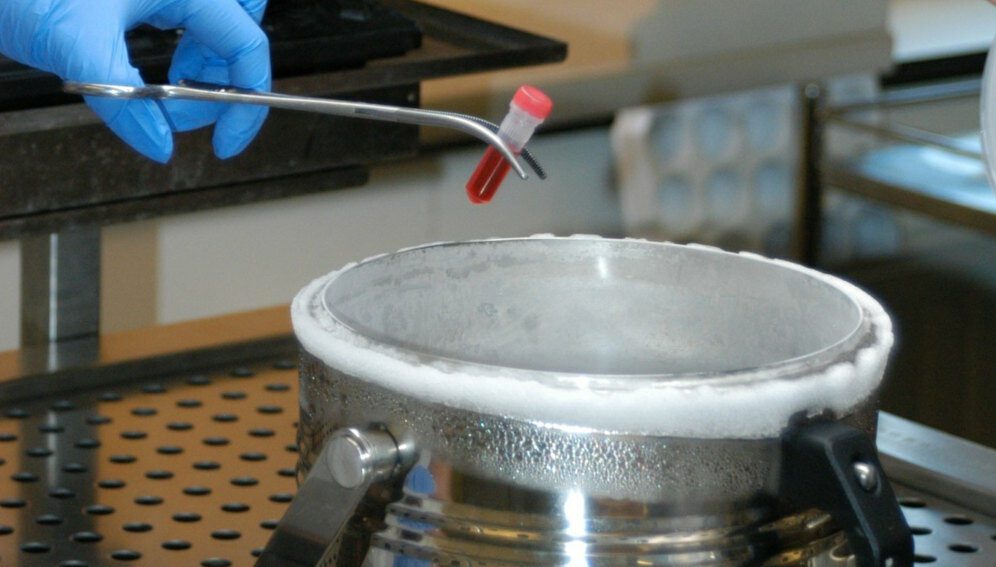01/10/21
Does biobanking hold the key to achieving universal health?

By: Sanjeet Bagcchi
Send to a friend
The details you provide on this page will not be used to send unsolicited email, and will not be sold to a 3rd party. See privacy policy.
[NEW DELHI] Increasing the availability of high-quality biological samples through biobanks has the potential to advance global health research and speed up progress towards Sustainable Development Goals such as achieving universal health coverage, a UN science summit has heard.
Biobanking is the process by which samples of bodily fluid or tissue are collected, annotated, stored and redistributed for research to improve understanding of health and diseases.
The COVID-19 pandemic underlined the value of this gathering and processing of samples and related data, as scientists scrambled to develop effective vaccines and treatments.
“Biobanking is central in supporting SDG3 — good health and well-being — by supporting the discovery of new treatments for the great healthcare challenges.”
Zisis Kozlakidis, International Agency for Research on Cancer
“Biobanking is central in supporting SDG3 — good health and well-being — by supporting the discovery of new treatments for the great healthcare challenges,” said virologist Zisis Kozlakidis, one of the speakers at the online Science Summit, held during the United Nations General Assembly in New York.
Developed in 2015 by the UN member states, the SDGs are “a shared blueprint” to attain, by 2030, a better and sustainable future for all. The 17 goals include ending poverty and hunger, achieving food security, improving nutrition and promoting sustainable agriculture, and ensuring healthy lives worldwide.
Kozlakidis, who is head of the laboratory services and biobank group at the International Agency for Research on Cancer (IARC), in Lyon, France, explained that research in medicine is based on the analysis of samples and — because associations in many diseases are often weak — these samples are needed in large quantities.
“The implication is clear: if more, well-characterised, high-quality samples are available through biobanks, the faster research will advance and impact upon the faster delivery of precision healthcare today as part of SDG3,” Kozlakidis added.
At the summit meeting on 22 September, Kozlakidis spoke about how data collected as part of routine clinical healthcare can be re-used for research, to improve health services in an increasingly digital age. “We have seen that the application of artificial intelligence has brought a new era of possibilities and promise, but it requires operating within large-scale, high-quality data [as found in some biobanks].”
He added that the model of digital health implemented in high-income countries would need to be adjusted for resource-restricted settings.
Kurt Zatloukal, a professor of pathology at the Medical University of Graz, Austria, told the meeting: “Biobanks host human samples like tumors that are removed by surgery, [and] blood that is taken during diagnostics, and these biological materials contain very detailed information on human diseases. This insight into human diseases lays the foundation for the development of new diagnostics and new drugs.”
The data generated through biosamples is a key resource for the digital transformation of health systems, he suggested.
World revenue for biobanking will surpass $53 billion in 2027, according to Zatloukal, who underlined one of the key challenges facing biobanking: the drug industry is required to provide funding, yet patients remain reluctant to make their samples available to drug companies.
“[To] tackle this problem, a model [has been] developed called Expert Centers,” Zatloukal told the summit. In this concept, he said, sending or selling bio-samples to industry directly by biobanks is avoided as it involves joint funding and contributions from public and private companies, with the data and knowledge shared between both.
“This model of transforming biological raw material into knowledge and data [can] also be used to enable international collaboration,” he said.
Fredrick Chite Asirwa, executive director and chief executive of the International Cancer Institute in Kenya, said more also needed to be done to tackle the challenges facing biobanking in Africa, including increasing awareness among healthcare professionals, policymakers and patients, and promoting the necessary infrastructure and networks needed to support biobanks.
“Most [important] is the ethical and legal implications of setting up biobanks, so that the processes that we develop are actually very responsive to the questions that are being asked currently within our systems,” he said.
This piece was produced by SciDev.Net’s Global desk.
















